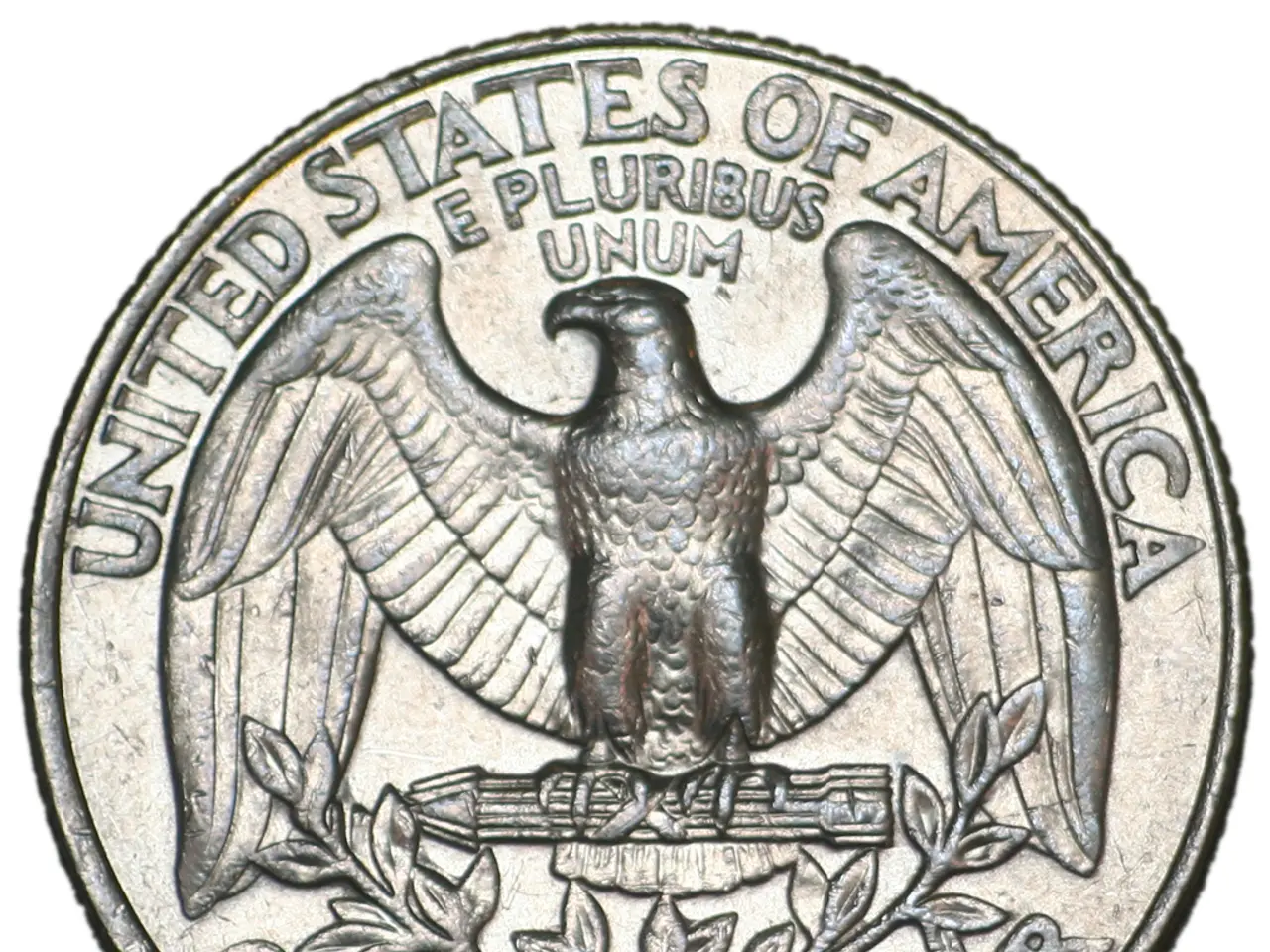Cryptocurrency Security Measures Advance with the FIT21 Bill Proposal
The U.S. House of Representatives has taken a significant step towards clarifying the regulatory landscape for digital assets by passing the Financial Innovation and Technology for the 21st Century Act (FIT21, H.R. 4763) on May 22, 2024. This bill, still not yet law, serves as a foundation for the digital asset industry, providing a clear division of regulatory authority between the Commodity Futures Trading Commission (CFTC) and the Securities and Exchange Commission (SEC).
The FIT21 Act, if passed, would assign the CFTC full authority over spot market digital asset commodities, while the SEC would regulate digital assets classified as securities. This framework aims to bring legal clarity to crypto regulation, reducing ambiguity, fostering innovation, and protecting consumers.
The Senate is yet to pass FIT21, but expectations are high that it will soon pass a reconciled version of the bill, known as the Digital Asset Market Clarity Act of 2025 (CLARITY Act, H.R. 3633). The CLARITY Act, which builds upon FIT21, clarifies and expands digital asset definitions and regulatory roles between the SEC and CFTC. The House passed the CLARITY Act in July 2025, and it is currently awaiting Senate approval.
James Wester, Director of Cryptocurrency at Javelin Strategy & Research, sees the bipartisan support for FIT21 and the CLARITY Act as a sign that current crypto regulation is inadequate and needs fixing. He believes that if the U.S. is to remain a leader in digital assets, crypto, and blockchain, it's important for regulations to provide real protections and safeguards.
The FIT21 bill received support from both sides of the aisle, with 208 out of 211 Republicans and several prominent Democrats, including former Speaker of the House Nancy Pelosi, voting in favour of the bill. The bill also establishes consumer protections for the U.S. crypto markets, mandating comprehensive disclosure requirements for digital asset issuers.
If passed and signed into law, the FIT21 and CLARITY Act frameworks would provide clearer rules to support traditional financial institutions in implementing digital asset strategies and reduce regulatory fragmentation. This would enable mainstream financial institutions to engage confidently in crypto markets.
In conclusion, the FIT21 and CLARITY Act frameworks represent a significant step forward for the U.S. crypto industry. They aim to definitively allocate regulatory jurisdiction between the SEC and CFTC, bringing legal clarity to crypto regulation and fostering innovation while protecting consumers. The U.S. House has set a precedent with this bipartisan bill, and the Senate's approval is eagerly awaited.
[1] Congress.gov. (2024). H.R. 4763 - 117th Congress (2021-2022): Financial Innovation and Technology for the 21st Century Act. Retrieved from https://www.congress.gov/bill/117th-congress/house-bill/4763 [2] Congress.gov. (2025). H.R. 3633 - 118th Congress (2023-2024): Digital Asset Market Clarity Act of 2025. Retrieved from https://www.congress.gov/bill/118th-congress/house-bill/3633 [4] CoinDesk. (2025). Senate Poised to Pass Bipartisan Crypto Bill, Analysts Say. Retrieved from https://www.coindesk.com/policy/2025/08/01/senate-poised-to-pass-bipartisan-crypto-bill-analysts-say/ [5] The Hill. (2025). Senate set to take up bipartisan crypto bill. Retrieved from https://thehill.com/policy/finance/574273-senate-set-to-take-up-bipartisan-crypto-bill
- The Financial Innovation and Technology for the 21st Century Act (FIT21, H.R. 4763) and the Digital Asset Market Clarity Act of 2025 (CLARITY Act, H.R. 3633), if passed, would significantly impact the business sector, particularly finance, by providing a clear regulatory framework for digital assets, attracting traditional financial institutions to engage confidently in the crypto markets.
- The passage of the FIT21 and CLARITY Act frameworks would not only bring legal clarity to the technology sector, particularly cryptocurrency, but also enhance consumer protection and promote innovation, thereby fostering the growth of the digital asset industry in the U.S.




